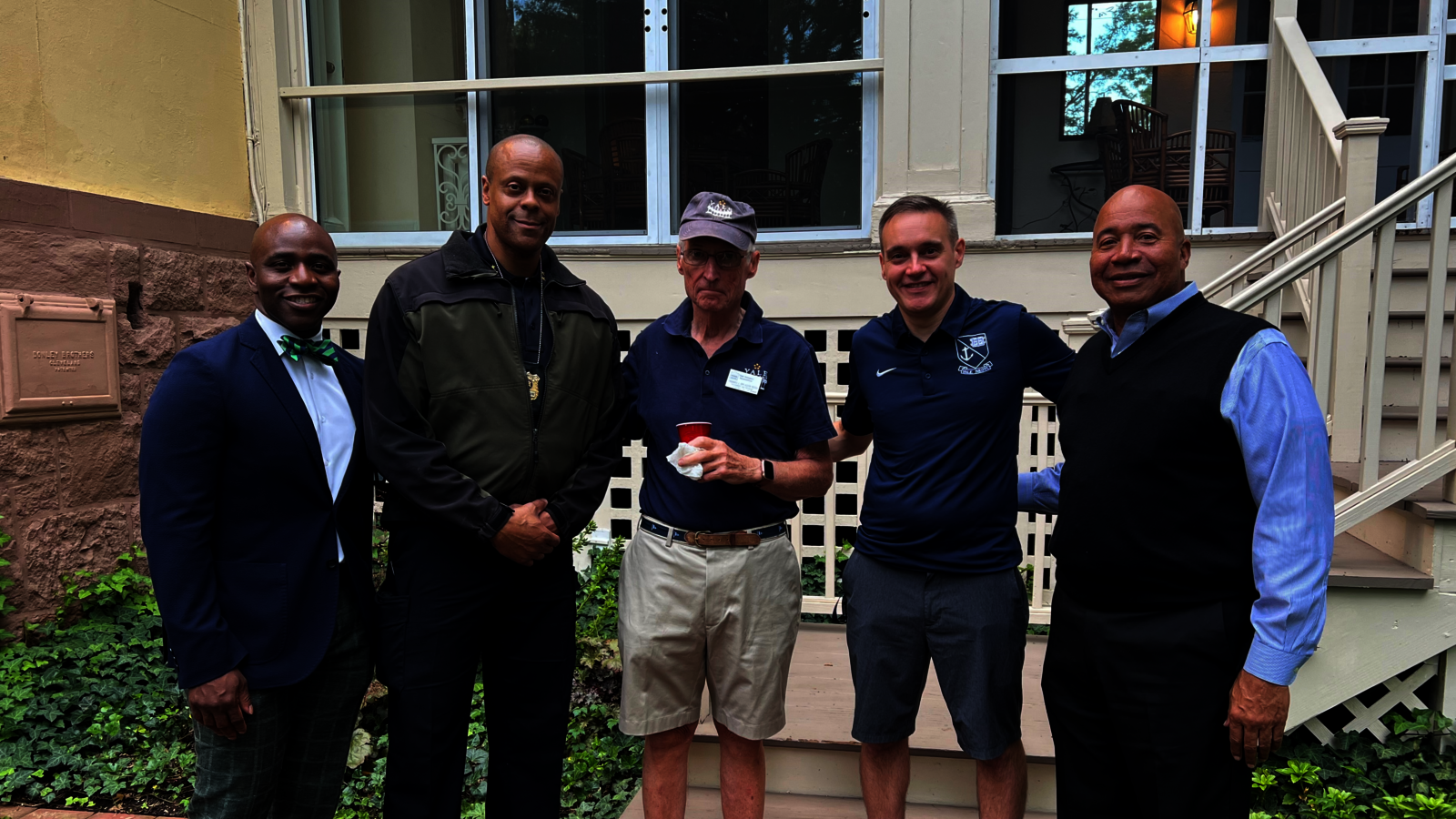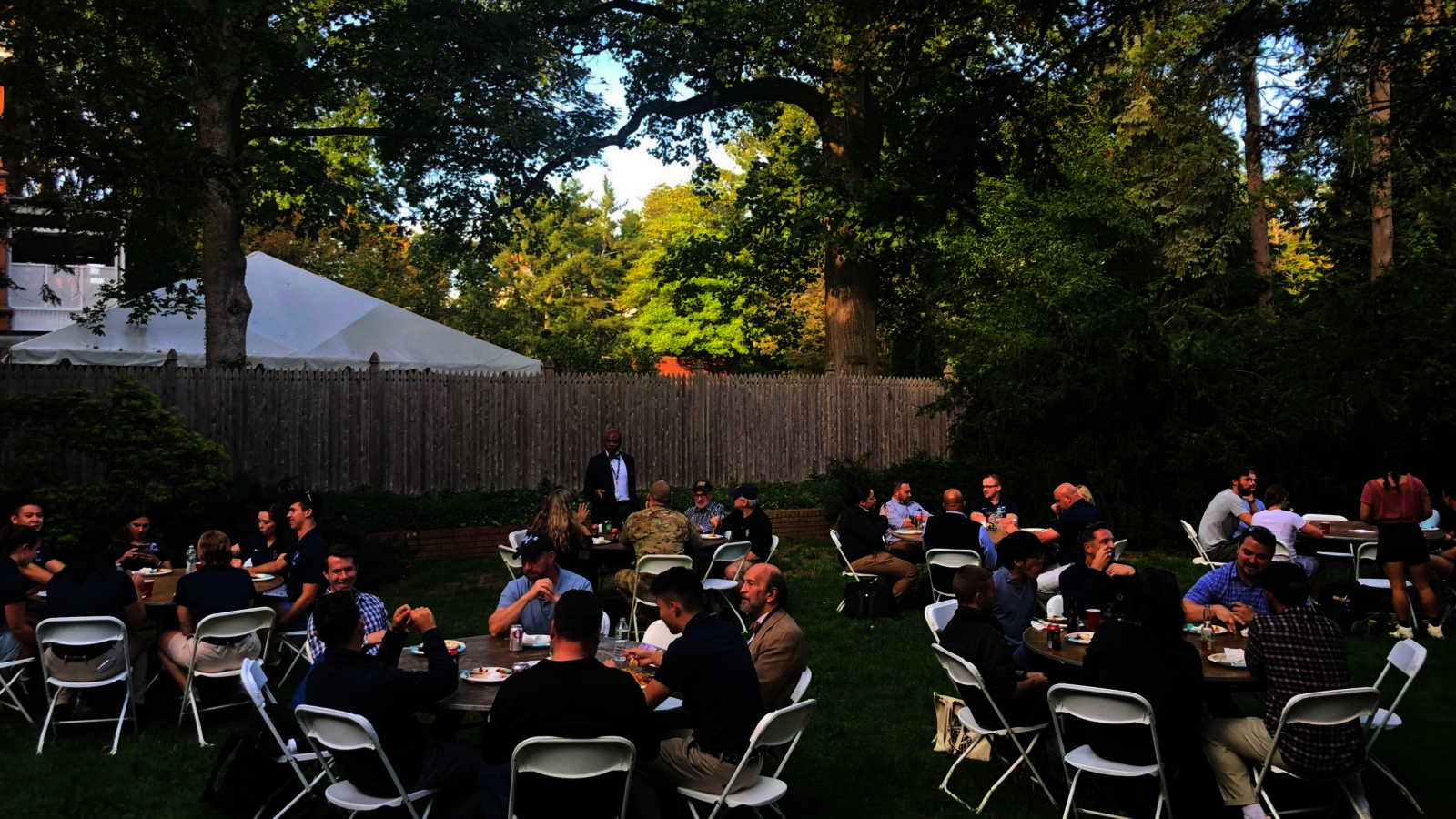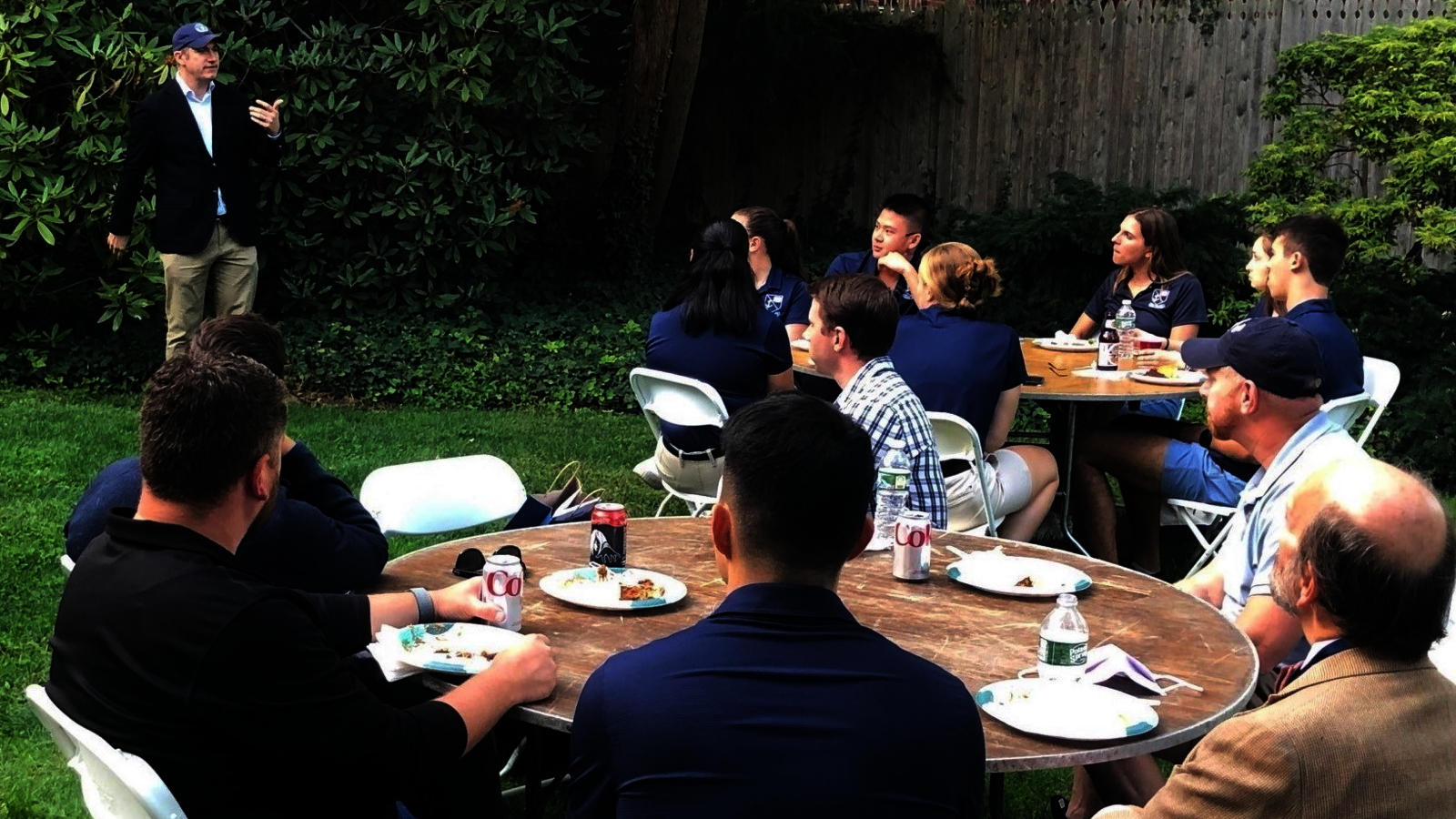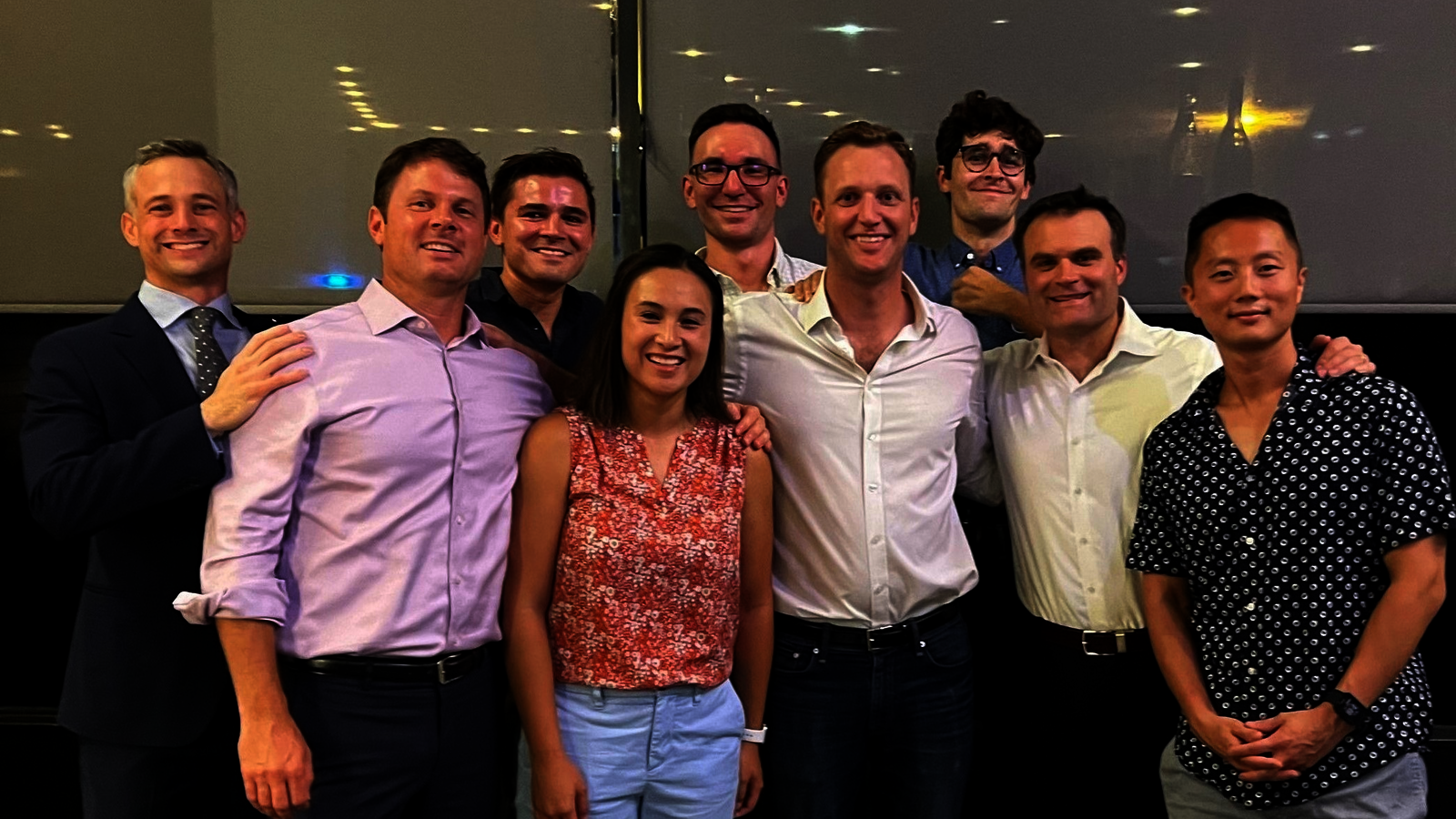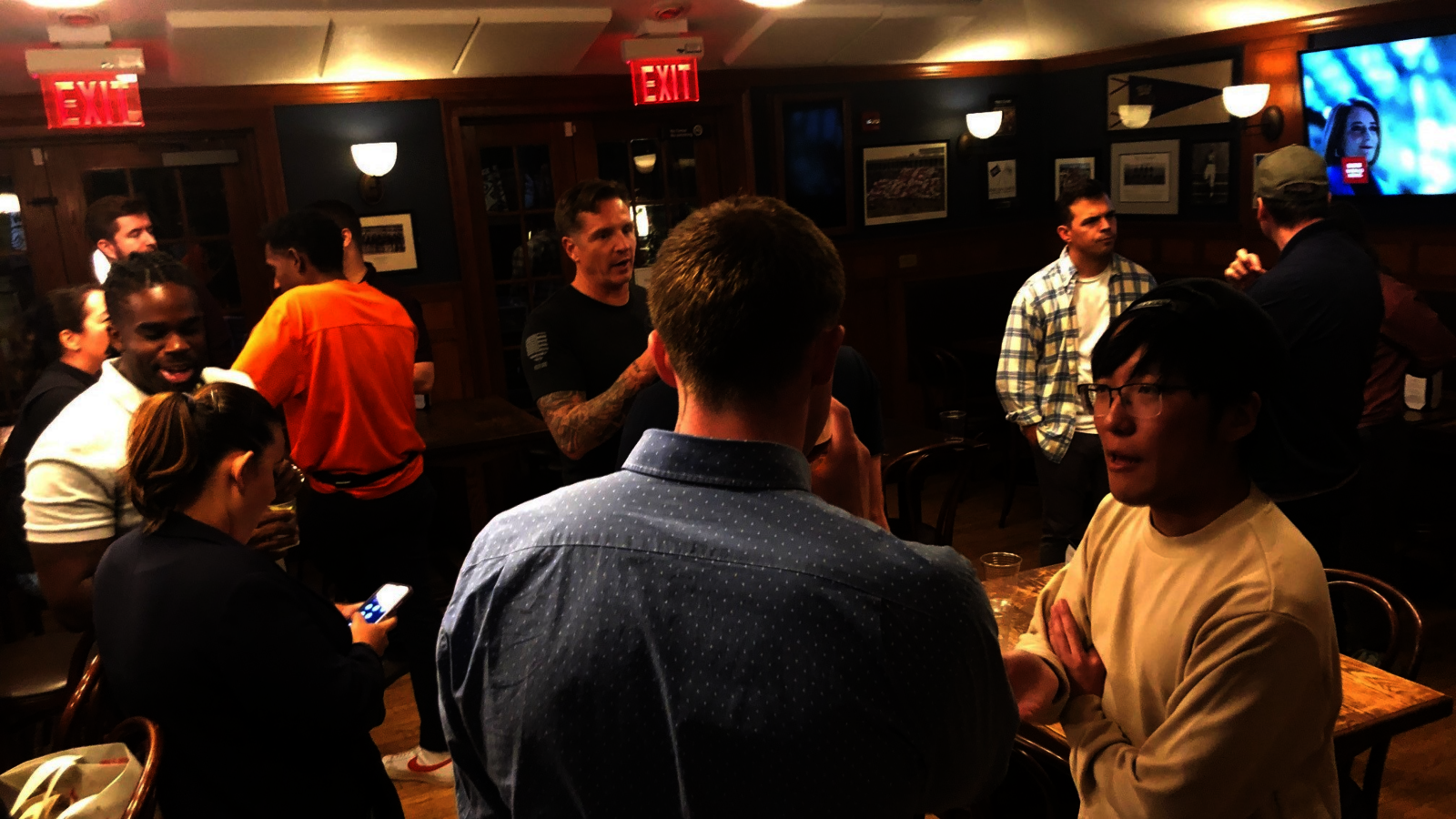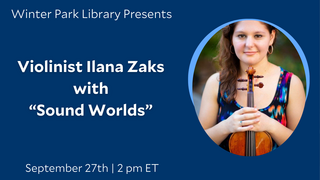In its ongoing efforts to connect and galvanize members of the Yale veteran-military community, the Yale Veterans Association (YVA), an alumni-led shared interest group, recently hosted a series of in-person gatherings and meetups on campus and regionally.
This included the Yale Veterans BBQ, an annual campus event that brings together alumni, student, faculty and staff veterans, as well as cadre and members of Yale ROTC (Reserve Officers’ Training Corps), friends, spouses, and allies of the veteran community. Temporarily suspended during the pandemic, the Veterans BBQ reemerged stronger than ever as attendees turned out in record numbers to gather face to face again to build and renew personal connections.
According to Adrian Bonenberger ’02, president of YVA and a U.S. Army veteran who served two tours in Afghanistan, virtual and in-person engagement opportunities remain a key component in strengthening the veteran community.
“Our combination of Zoom and in-person events has been crucial in establishing and maximizing meaningful relationships,” he said, noting the camaraderie and strong bonds that can develop when people physically come together. “When it comes to social events, there’s no substitute for in-person.”
Having attended the funeral last year of Sperie Perakos ’38, Yale’s oldest alumni veteran who served in World War II as a U.S. Army intelligence officer and participated in D-Day at Utah Beach, Bonenberger said he was reminded of how small the Yale veteran community is, and the importance of its members to support one another.
“I hope every veteran who attends one of our events comes away having connected with at least one veteran they’ve never met before, whether for friendship, an exchange of ideas, or some possibility for future professional collaboration,” said Bonenberger ’02.
For Rod Lowe, a U.S. Army veteran and co-chair of the Yale Veterans Network (YVN), Yale’s staff veteran affinity group, gatherings like the Veterans BBQ provide former service members with the opportunity to reflect on their time in uniform, discuss career and personal aspirations, and help them feel more connected to Yale.
“I hope they feel a strong sense of community and help us amplify the message that Yale is a place where veterans are welcome,” he said.
These words resonated with veterans like Will Clancy, a first-year student at Yale Law School whose military career included serving in the U.S. Army Special Forces (also known as the “Green Berets”).
